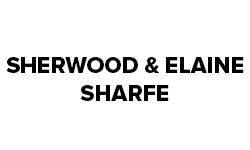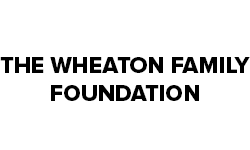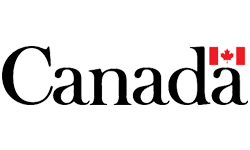Part B Learning Plan – 10 Social Studies, History, Native Studies
Inquiries are identified and connections to Big Ideas are noted. Teachers may choose any inquiry or combine inquiries to use the approach that resonates best with their students.
Suggested inquiries may be studied in any order according to student interests.
If individuality is so important, why do we live together in groups?
- Why are there consistencies in societal organization and societal issues?
Big Ideas Explored:
- Why people choose to live in societies.
- The impact of various worldviews on societal structures and organization.
- Contrasting perspectives of:
- freedom and order
- individual rights and collective rights
- hierarchy and equality
- resources: protect or exploit
- The impacts of a variety of ideologies on decision-making.
- The responsibilities individuals and groups collectively assume for one another.
Is privilege and marginalization inevitable in society?
- What impact did/does privilege and marginalization have on history and the development of society?
- What impact does worldview have on society’s beliefs and organizational structure?
- Whose worldviews compose Canadian worldview?
Big Ideas Explored:
- The constructs of privilege and marginalization and:
- the impact these concepts have had on historical and present society
- the forces/structures that perpetuate privilege and marginalization
- The impacts that various worldviews have on individuals’ and societies’ beliefs and organization.
- Canada’s worldview includes First Nations, Métis and Inuit perspectives but often accurate, representative interpretation is misconstrued so that First Nations, Métis, and Inuit perspectives are often misrepresented or not represented in Canadian worldview.
Questions to Guide Inquiry
Essential questions and guiding questions are posed to support teachers as they facilitate students’ exploration of the inquiry. Teachers are encouraged to adjust the wording, omit or add questions as they choose.
- In what ways is ideology useful in guiding human beliefs and behavior?
- How do an individual’s values and beliefs affect their view of society?
- How does the organization of society reflect current worldviews and beliefs?
- How does societal organization change over time and what factors cause these changes?
- What are the limitations of ideology in guiding beliefs and behavior?
- What is the place for ideological thinking in contemporary society?
- What were the influences of ideological thinking on historical societies?
- What impact has ideological thinking had on Indigenous societies?
- How does ideology influence our view of social justice?
- What is the relationship between ideology and approaches to social justice?
- How does society achieve a balance between the responsibilities of citizens to society and society’s responsibilities to its citizens?
- What is society’s responsibility to you?
- What is your responsibility to society?
- Has Canadian society been organized to reflect our national values and beliefs?
- What do Canadians believe about marginalization?
- What impact did/does privilege and marginalization have historically and currently on society?
- What happens when members of society continue to be marginalized?
CONNECT TO TOPIC AND SURFACE STUDENTS’ THINKING ABOUT …
- Surface student thinking in response to the prompts or hook questions posed.
- Add questions from students; adjust the wording of questions as needed.
- Chart or record student thinking for later reflection in a ‘Before, During, After’ format to note changes in student thinking.
This inquiry looks at the reasons and ways that individuals organize themselves so they can live together and the issues that communities must address in order to be successful.
Inquiry
If individuality is so important, why do we live together in groups?
- Why are there consistencies in societal organization and societal issues?
- Is privilege and marginalization inevitable in society?
Hook Questions – Think about… Talk about…
- How does a society organize itself?
- What characteristics do societies share? Why are there differences?
- How do we balance individual and community interests? What ideologies come into play?
- What impact does worldview have on the organization of communities?
- How were/are ideological differences resolved?
- Why does privilege and marginalization exist?
Hook questions get students thinking about the issues in the inquiry and can also form the framework to guide student direction in exploration of the inquiry.
Historical Thinking Connections
Historical Significance: How do we decide what is important to learn about the past?
Primary Source Evidence: How do we know what we know about the past?
Cause and Consequence: Why do events happen and what are their impacts?
Historical Perspectives: How can we better understand the people of the past?
Ethical Dimension: How can history help us to live in the present?
Continuity and Change: How can we make sense of the complex flows of history?
DEVELOPING UNDERSTANDING
- What themes are emerging?
- What are the similarities and differences?
- Why do students think this is so?
The independence level of the class, will determine how much teacher direction is required to do this.
Surface students’ understandings on ideology, its purpose and effects, historically and on contemporary society. (See part C for resources) Introduce the concept of a range within an ideology or range of thinking within any of the suggested topics of exploration and the impacts that range has on implementation of societal structures.
Students are making connections between societal structures and ideology and why marginalization continues. Identify questions students wish to explore. When students find issues, from very different perspectives, then overarching themes can be identified.
There are many avenues of inquiry that would allow students to examine the influences on the development of societal structures within the suggested topics of exploration.
Possible Topics of Exploration
- Impacts of range of perspective in Ideologies
- Political Ideology Spectrum
- freedom and order,
- individual rights and collective rights,
- hierarchy and equality
- Economic Ideology Spectrum
- Socialism – Capitalism
- Cooperation – Competition
- Economic control – Economic freedom
- Resources use – Protect – Exploit
- Indigenous Worldviews
- Religious Structures
- Colonialism
- Social Structures
- Governance Structures
- Decision-making
- Law
- Distribution of Wealth
- Privilege and Marginalization
- Application of Justice
- Political Ideology Spectrum
Essential Questions: Guiding Questions
In what ways is ideology useful in guiding human beliefs and behavior?
- How do an individual’s values and beliefs affect their view of society?
- How does the organization of society reflect current worldviews and beliefs?
- How does societal organization change over time and what factors cause these changes?
What are the limitations of ideology in guiding beliefs and behavior?
- What is the place for and effects of ideological thinking in contemporary/ historical /Indigenous society?
How does ideology influence our view of social justice?
- What is the relationship between ideology and approaches to social justice?
How does society achieve a balance between the responsibilities of citizens to society and society’s responsibilities to its citizens?
- What is society’s responsibility to you?
- What is your responsibility to society?
Has Canadian society been organized to reflect our national values and beliefs?
- What impact does/did privilege and marginalization have historically and currently on society?
- What happens when members of society continue to be marginalized?
Reflect back on essential questions. What are students thinking now? How has their thinking changed?
- What are the responsibilities of society to its citizens?
- What are the responsibilities of citizens to society?
- Who is responsible for the decisions made in a society/community?
- Who must accept the consequences for the decisions made?
- What safeguards are in place to make sure decisions are fair and equitable?
- Whose perspective is reflected in societal decision-making?
- What are the outcomes of ongoing marginalization?
- What is required for change in marginalized populations?
Inquiry
Is privilege and marginalization inevitable in society?
- What impact does worldview have on society’s beliefs and organizational structure?
- What impact did/does privilege and marginalization have on historical and current society?
This part of the inquiry asks students to extend their research to understand the constructs of privilege and marginalization. How are these concepts apparent in their topic of exploration?
- What worldviews are evident in your research?
- What impact do they have on an individuals’ and society’s beliefs and organization?
- i.e. Assess how resources are distributed.
- How are differing worldviews accommodated?
- What evidence is there of privilege and marginalization? What is the impact either historically or in current society?
CONNECT TO TOPIC AND SURFACE STUDENTS’ THINKING ABOUT …
- Surfacing student thinking, posting, and then reflecting on thinking to note how thinking has changed and what has caused the changes.
- Jigsaw strategy approach: Students, individually or in groups, explore similar questions, present their findings to the group. The teacher helps students to note similarities, differences, and themes. Students are encouraged to develop summary statements to clarify their thinking and describe new learning.
- Reflect on initial thinking to note how thinking has changed. What evidence supports the new learning?
Additional Inquiry Suggestions
The same inquiry questions can be used to explore this inquiry.
- If individuality is so important why do we live in groups?
- Why are there consistencies in societal organization and issues?
- Is marginalization inevitable in society?
- What are your rights? What are your freedoms? (Brainstorm)
- What limits your freedoms?
- What are our Freedoms in Canada? What are our Rights?
- Give a definition of rights and freedoms.
- Give examples to support your definitions.
- Are those rights and freedoms applied equitably?
Go back to brainstormed list and categorize according to Individual Rights and Collective Rights. Develop a working definition of Individual Rights and Collective Rights. Expand lists based on new information from definition.
Directly teach students about ideology and the range of thinking within an ideology. See the resource section C for supports.
- Where do students think they might fall on the political or economic spectrum?
Examine a variety of policy documents. Within those policies:
- Identify your rights and responsibilities within the documents.
- What do these rights and responsibilities say about what the people who developed these believe?
- What ideology is evident?
- How are rights, freedoms, and responsibilities evident?
Policy documents
- Student handbook
- Education Act
- Human Rights Codes
- Canada’s Multicultural policy
Investigate the Charter of Rights and Freedoms
- Select specific Rights and Freedoms from the Charter and have students examine from the perspective of left, center, and right of the political ideological spectrum.
- Have student groups choose a particular perspective: left, center, or right, and:
- determine their different views of human nature
- the role of government
- priorities for society
- hypothesize the impact that would have on the Charter of Rights or Freedoms.
- Present their perspective to class.
- Where are these ideological impacts evident in their world?
After the presentations have student groups create a Charter of Responsibilities under which they would like to live:
- That corresponds with the Charter of Rights and Freedoms from their chosen perspective (right, left, center).
- Identify the ideology they have chosen and justify their Charter of Responsibilities perspective.
- What kinds of issues or concerns did students have to consider in developing their Charter of Responsibilities?
- How were the student’s personal beliefs and values reflected in their Charter of Responsibilities?
- How did they balance individual and community interests?
- Is privilege and marginalization addressed in their Charter?
Vocabulary
- Ideology
- Conservatism
- Liberalism
- Socialism
APPLY AND EXTEND KNOWLEDGE
- The Indian Act
- Residential Schools,
- The Reserve System
- Location and Movement/Relocation of reserves in Canada’s north
- Movement/Relocation of blacks in Halifax – 1962
Have students:
- Identify the rights and freedoms that were impacted.
- What does this say about the beliefs of the people that allowed this to happen?
- What might be their ideological views? Justify your thinking.
- What kinds of worldviews/beliefs and behaviour were required for these policies to be implemented? -By the state/government?
- What alternate policies could have been implemented that would be a more just policy?
- What kinds of worldviews/beliefs and behaviour were required for these policies to be implemented? -By the people?
- Assume the persona of a citizen from the era discussed.
- What could you have done differently to influence the government? Or
- Suggest changes to the policy, and how you would influence the government to adopt those changes.
EVIDENCE OF LEARNING
How has their thinking changed from their initial thinking?
What evidence do they have to support their thinking?
- What do you think now about…?
- What has caused your thinking to change?
- What evidence supports your thinking?
- Why is this information important to know?
- How will you use this information?
Inquiry
If individuality is so important, why do we live together in groups?
Why are there consistencies in societal organization and societal issues?
Is privilege and marginalization inevitable in society?
Essential Questions: Guiding Questions
- In what ways is ideology useful in guiding human beliefs and behavior?
- How do an individual’s values and beliefs affect their view of society?
- How does the organization of society reflect current worldviews and beliefs?
- How does societal organization change over time and what factors cause these changes?
- What are the limitations of ideology in guiding beliefs and behavior?
- What is the place for ideological thinking in contemporary society?
- What were the influences of ideological thinking on historical societies?
- What impact has ideological thinking had on Indigenous societies?
Have students use the following prompts to connect to or address any of the essential questions, the enduring understandings, or the inquiry questions to demonstrate their evidence of learning.
- What do you think now about…?
- What has caused your thinking to change?
- What evidence supports your thinking?
- Why is this information important to know?
- How will you use this information?
Inquiry
If individuality is so important, why do we live together in groups?
Why are there consistencies in societal organization and societal issues?
Is privilege and marginalization inevitable in society?
Essential Questions: Guiding Questions
- In what ways is ideology useful in guiding human beliefs and behavior?
- How do an individual’s values and beliefs affect their view of society?
- How does the organization of society reflect current worldviews and beliefs?
- How does societal organization change over time and what factors cause these changes?
- What are the limitations of ideology in guiding beliefs and behavior?
- What is the place for ideological thinking in contemporary society?
- What were the influences of ideological thinking on historical societies?
- What impact has ideological thinking had on Indigenous societies?
- Injustices of today have roots in the past.
- Canadian society is challenged to manage the co-existence of diverse worldviews.
- Canadian citizens work to achieve a balance between rights and responsibilities through learning and action.
- Canadian society has inequities and elimination of these is beneficial for all Canadians.
- For each individual, becoming aware of racism in Canadian society is an evolutionary process and a precursor to change.
- As citizens of local, national, and global communities, Canadians are conscious, self-reflective, and critical of their own beliefs and actions and seek to make positive change.
- Citizens show flexibility of mind.
- How does ideology influence our view of social justice?
- What is the relationship between ideology and approaches to social justice?
- Who accepts responsibilities for decisions made in society?
- What safeguards are in place to ensure fair and equitable decisions?
- Whose perspective is reflected in societal decision-making?
- How does society achieve a balance between the responsibilities of citizens to society and society’s responsibilities to its citizens?
- What is society’s responsibility to you?
- What is your responsibility to society?
- Has Canadian society been organized to reflect our national values and beliefs?
- What do Canadians believe about marginalization?
- What impact did/does privilege and marginalization have historically and currently on society?
- What happens when members of society continue to be marginalized?
- What is required for change in marginalized populations?
STUDENT CITIZENSHIP JOURNAL OPPORTUNITIES
Students are keeping a Citizenship Journal to reflect upon their developing views of citizenship. This section provides prompts for student journals. Students are invited to choose one that interests them or propose their own. Students can also respond to any of the essential questions.
Students are encouraged to respond using a variety of genres.
- What is the moral use of power? Does the end justify the means?
- Is there still a place for ideology in society?
- How has ideology driven change in the world?
- How does ideology affect you on a daily basis?
- Can a nation of individuals share a common ideology?
- How would a government free of ideology function?
- What would need to happen for marginalization and privilege to disappear? How would you achieve that?
© 2023 Concentus Citizenship Education Foundation Inc. All Rights Reserved.










